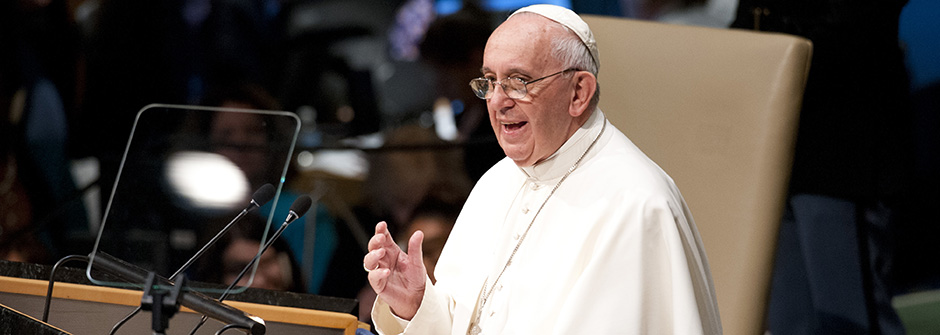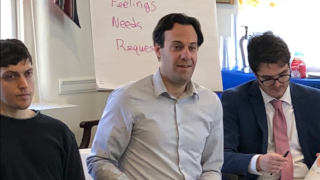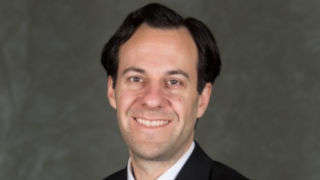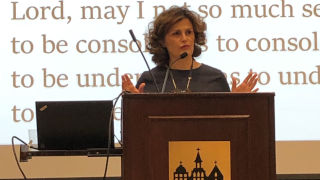
Just Peacemaking Through Nonviolence
"Father, forgive them; for they do not know what they are doing." Luke 23:34.
While deeply rooted in its commitment to Jesus' words and actions, the Catholic Church has also been challenged by the complexities of war and peace, and has at times condoned, ignored and even encouraged violence.
Since the papacy of Leo XIII (1878-1903), however, popes have emphatically, and consistently, advocated for peace, addressing issues as diverse as immigration, racism, gun violence, the arms race and climate change - which play out in the modern political arena.
On September 30 and October 1, 2019, an interdisciplinary group of scholars met to explore Pope Francis's teachings on peacemaking as a guidepost for understanding what it means to live and promote peace in the context of today's cultural and social currents.
- Read more »
Discussions were informed by the church's teaching on aspects of social and cultural life including war, economics, education, inter-religious dialogues and health care. Veterans, families of veterans and members of parishes were warmly welcome.
Pope Francis has addressed peace and nonviolence formally through Church encyclicals and has appealed to all in his annual message to the world. He has spoken out on behalf of migrants and refugees, calling for a "spirit of compassion" for those who are forced to leave their homelands amid war, hunger, poverty and persecution.
His teachings on nonviolence have been heard in parishes around the world and in the United Nations General Assembly, where Pope Francis has addressed heads of state and international diplomats. "Bringing peace is central to the mission of Christ's disciples," Pope Francis said, speaking on World Peace Day last January. "That peace is offered to all those men and women who long for peace amid the tragedies and violence that mark human history."
Highlights of the Program:
The keynote address by Cardinal Peter Turkson, who has played a leading role in spreading Pope Francis' concern for justice, peace and human rights, was given by proxy. Fr. Christopher Mahar, who has worked closely with him on social justice matters spoke on behalf of the Cardinal.
Turkson was president of the Pontifical Council for Justice and Peace from October 2009 until January 2017, when the competencies of that office and three other dicasteries were merged into one new department within the Roman Curia, entitled The Dicastery for Promoting Integral Human Development. Pope Francis named him the first prefect of that new dicastery.
In addition to Cardinal Turkson, speakers included members of Seton Hall's faculty and administration joined by scholars from outside the University.
- Maria Stephan of the U.S. Institute of Peace provided the keynote on October 1st on the effectiveness of nonviolent action.
- Ken Butigan, Director of Peace, Justice and Conflict Studies at DePaul University explored the topic of the responsibility of higher education for peace, nonviolence and human development.
News


February 19, 2020
Dr. Eli McCarthy, Director of the DC Peace Team, inspired students and staff to consider
new pathways to resolving conflict.


January 22, 2020
Seton Hall will host a training workshop on nonviolent communication on Friday, 2/14
from 9 a.m. to 1 p.m. in the Faculty Lounge.


October 09, 2019
Conference explores paths to nonviolence and looks at the Church's role in expanding
peace worldwide.
Thank You to Our Sponsors
This event was co-sponsored by the Catholic Nonviolence Initiative (a project of Pax Christi International), the Center for Catholic Studies, the Community of Sant ‘Egidio, the University Core, the Department of Religion, the Immaculate Conception Seminary, Jewish-Christian Studies, the Program in Catholic Studies, and the School of Diplomacy and International Relations.

